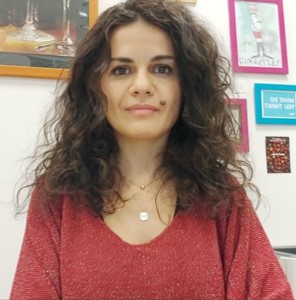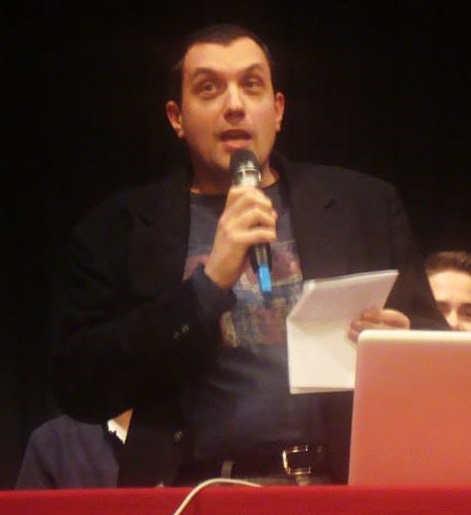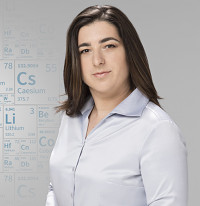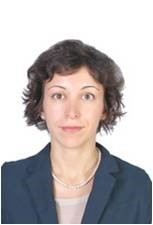Studying at the University of Verona
Here you can find information on the organisational aspects of the Programme, lecture timetables, learning activities and useful contact details for your time at the University, from enrolment to graduation.
Academic calendar
The academic calendar shows the deadlines and scheduled events that are relevant to students, teaching and technical-administrative staff of the University. Public holidays and University closures are also indicated. The academic year normally begins on 1 October each year and ends on 30 September of the following year.
Course calendar
The Academic Calendar sets out the degree programme lecture and exam timetables, as well as the relevant university closure dates..
| Period | From | To |
|---|---|---|
| I sem. | Oct 2, 2017 | Jan 31, 2018 |
| I sem - 3° anno | Oct 30, 2017 | Jan 31, 2018 |
| II sem. | Mar 1, 2018 | Jun 15, 2018 |
| Session | From | To |
|---|---|---|
| Sessione invernale d'esame | Feb 1, 2018 | Feb 28, 2018 |
| Sessione estiva d'esame | Jun 18, 2018 | Jul 31, 2018 |
| Sessione autunnale d'esame | Sep 3, 2018 | Sep 28, 2018 |
| Session | From | To |
|---|---|---|
| Sessione estiva di laurea | Jul 20, 2018 | Jul 20, 2018 |
| Sessione autunnale di laurea | Nov 27, 2018 | Nov 27, 2018 |
| Sessione invernale di laurea | Mar 27, 2019 | Mar 27, 2019 |
| Period | From | To |
|---|---|---|
| Christmas break | Dec 22, 2017 | Jan 7, 2018 |
| Easter break | Mar 30, 2018 | Apr 3, 2018 |
| Patron Saint Day | May 21, 2018 | May 21, 2018 |
| VACANZE ESTIVE | Aug 6, 2018 | Aug 19, 2018 |
Exam calendar
Exam dates and rounds are managed by the relevant Science and Engineering Teaching and Student Services Unit.
To view all the exam sessions available, please use the Exam dashboard on ESSE3.
If you forgot your login details or have problems logging in, please contact the relevant IT HelpDesk, or check the login details recovery web page.
Academic staff

Boselli Maurizio
 maurizio.boselli@univr.it
maurizio.boselli@univr.it
 3478344185
3478344185
 lorenzo.meneghini@univr.it
lorenzo.meneghini@univr.it
 chiara.nardon@univr.it
chiara.nardon@univr.it
Sandri Marco
 marco.sandri@univr.it
marco.sandri@univr.it
Study Plan
The Study Plan includes all modules, teaching and learning activities that each student will need to undertake during their time at the University.
Please select your Study Plan based on your enrollment year.
1° Year
| Modules | Credits | TAF | SSD |
|---|
2° Year activated in the A.Y. 2018/2019
| Modules | Credits | TAF | SSD |
|---|
3° Year activated in the A.Y. 2019/2020
| Modules | Credits | TAF | SSD |
|---|
| Modules | Credits | TAF | SSD |
|---|
| Modules | Credits | TAF | SSD |
|---|
| Modules | Credits | TAF | SSD |
|---|
Legend | Type of training activity (TTA)
TAF (Type of Educational Activity) All courses and activities are classified into different types of educational activities, indicated by a letter.
Oenology II - TECNOLOGIE E PROCESSI ENOLOGICI (2019/2020)
Teaching code
4S00151
Credits
9
Coordinator
Not yet assigned
Language
Italian
Scientific Disciplinary Sector (SSD)
AGR/15 - FOOD SCIENCE AND TECHNOLOGY
The teaching is organized as follows:
Teoria
Laboratorio [1° turno]
Laboratorio [2° turno]
Esercitazioni
Learning outcomes
------------------------
MM: Teoria
------------------------
The purpose of this course is to provide knowledge concerning the main steps of the winemaking process and the management of the related technological variables, in relation to the chemical and biochemical mechanisms taking place during winemaking. In addition to discussing the major red and white winemaking protocols, the course features a section on ‘special’ winemaking procedures, including production of rosé wines, sparkling wines, low sulfites wines and wines from withered grapes. The mechanisms contributing to wine ageing and maturation will be discussed in relationship to the most recent advances in wine science.
------------------------
MM: Laboratorio
------------------------
The course provides practical knowledge about major procedures of process and quality control in the wine industry.
------------------------
MM: Laboratorio
------------------------
The course provides practical knowledge about major procedures of process and quality control in the wine industry.
------------------------
MM: Esercitazioni
------------------------
The course is based on a series of workshops in which students gain ability in using sensory evaluation as a control process tool. The sensory properties of selected compounds having high odor or taste impact is evaluated, and their practical management strategies are discussed
Program
------------------------
MM: Teoria
------------------------
- Grape ripening and its influence on the main berry components of enological interest - Must enzymatic activities - Grape harvest and its influence on wine quality - Mechanisms of sulfur dioxide action - Wine aroma: nature and origin of wine aroma compounds - The management of alcoholic fermentation: Yeast metabolism and production of aroma compounds. Fermentation nutrients. Criteria for the selection of yeast strains - The production of white wine: Pre-fermentative steps. Management of pressing. Reductive and oxidative handling of grape must. The management of alcoholic fermentation. The contribution of yeast lees. Main process indicators and relative analyses. - The production of red wine: Pre-fermentative steps. Management of maceration. The management of alcoholic fermentation. Main process indicators and relative analyses. - The management of malolactic fermentation. Bacteria metabolism and production of aroma compounds. Fermentation nutrients. Criteria for the selection of bacterial strain. - Wine maturation and ageing in tank and in barrel. The contribution of oxygen - Special wines: Rosé wines, sparkling wines, low sulfites wines and wines from withered grapes. - Wine stabilization treatments. - Wine bottle aging. Main chemical mechanisms. Role of oxygen. Evolution of mouthfeel and formation of the aging ‘bouquet’ - Wine defects, prevention and cure.
------------------------
MM: Laboratorio
------------------------
- Evaluation of compositional characteristics of enological tannins - Classification of red wines based on their oxidative response in relationship with tannin and anthocyanin content - Evaluation of white wine instabilities - Blending operations to match product specifications
------------------------
MM: Laboratorio
------------------------
- Evaluation of compositional characteristics of enological tannins - Classification of red wines based on their oxidative response in relationship with tannin and anthocyanin content - Evaluation of white wine instabilities - Blending operations to match product specifications
------------------------
MM: Esercitazioni
------------------------
- Fermentation management in conditions of high osmotic stress: significance of ethyl acetate and Acetaldehyde and related mechanisms of formation - Reductive volatile compounds: sensory characteristics and and practical management - Management of Brettanomyces spoilage: sensory properties of 4-ethyl phenol and practical management - Enological tannins: sensory characteristics and practical management
Bibliography
| Activity | Author | Title | Publishing house | Year | ISBN | Notes |
|---|---|---|---|---|---|---|
| Teoria | Ribereau-Gayon | Trattato di enologia vol I e II (Edizione 3) | Edagricole | 2007 | 88-506-4770-0 | |
| Teoria | Jackson, Ronald | Wine Science (Edizione 3) | Elsevier | 2014 | 978-0-12-381468-5 | |
| Laboratorio | Ribereau-Gayon | Trattato di enologia vol I e II (Edizione 3) | Edagricole | 2007 | 88-506-4770-0 | |
| Laboratorio | Jackson, Ronald | Wine Science (Edizione 3) | Elsevier | 2014 | 978-0-12-381468-5 | |
| Laboratorio | Ribereau-Gayon | Trattato di enologia vol I e II (Edizione 3) | Edagricole | 2007 | 88-506-4770-0 | |
| Laboratorio | Jackson, Ronald | Wine Science (Edizione 3) | Elsevier | 2014 | 978-0-12-381468-5 | |
| Esercitazioni | Ribereau-Gayon | Trattato di enologia vol I e II (Edizione 3) | Edagricole | 2007 | 88-506-4770-0 | |
| Esercitazioni | Jackson, Ronald | Wine Science (Edizione 3) | Elsevier | 2014 | 978-0-12-381468-5 |
Examination Methods
------------------------
MM: Teoria
------------------------
Oral exam to verify knowledge of the topics discussed during theoretical and practical classes. Exam results are given in fractions of thirty. No distinction will be made between students attending/non attending classes.
------------------------
MM: Laboratorio
------------------------
Knowledge of the presented topics will be assessed during the oral theory exam. Participation to the classes is compulsory in order to be admitted to the oral exam.
------------------------
MM: Laboratorio
------------------------
Knowledge of the presented topics will be assessed during the oral theory exam. Participation to the classes is compulsory in order to be admitted to the oral exam.
------------------------
MM: Esercitazioni
------------------------
Knowledge of the presented topics will be assessed during the oral theory exam. Participation to the classes is compulsory in order to be admitted to the oral exam.
Type D and Type F activities
Modules not yet included
Career prospects
Module/Programme news
News for students
There you will find information, resources and services useful during your time at the University (Student’s exam record, your study plan on ESSE3, Distance Learning courses, university email account, office forms, administrative procedures, etc.). You can log into MyUnivr with your GIA login details: only in this way will you be able to receive notification of all the notices from your teachers and your secretariat via email and also via the Univr app.
Graduation
Attendance modes and venues
As stated in the Didactic Regulations, attendance is compulsory for practical and laboratory exercises (see courses with laboratory in the annex), unless otherwise stipulated by the teaching board.
Attendance at lectures is strongly recommended.
Part-time enrolment is permitted. To find out more, please consult the Part-time enrolment possibilities page.
The course's teaching activities take place in Villa Lebrecht and Villa Eugenia, located in the San Floriano di Valpolicella campus, and may also take place in the other spaces of the Science and Engineering area, which is composed of the buildings of Ca‘ Vignal 1, Ca’ Vignal 2, Ca' Vignal 3 and Piramide, located in the Borgo Roma campus,
Lectures are held in the classrooms of Villa Lebrecht while practical exercises are carried out in the teaching laboratories dedicated to the various activities.
Overview of courses with laboratory.
The attached document specifies the courses, divided by year, that include exercise/laboratory CFUs: for this type of CFU only, attendance is compulsory in order to be admitted to the examination.
Documents
| Title | Info File |
|---|---|
|
|
pdf, it, 121 KB, 18/10/23 |



























